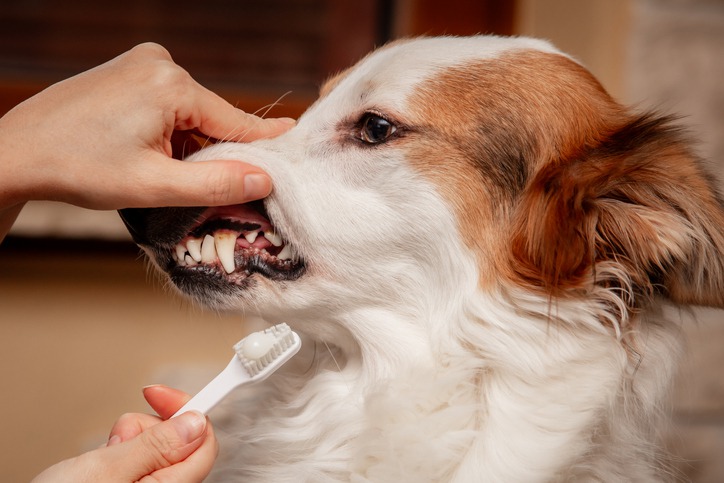Choosing the right veterinary care for your pet is a significant decision that affects their well-being and health. With numerous options available, it’s often challenging to identify the most reliable and efficient veterinarian for your beloved animal companion.
To ensure the best health outcomes, it is essential to consider several factors—from the vet’s experience to the facility’s services. This guide will outline key considerations and practical steps to help you select the right veterinary care for your furry friend.
Assessing Your Pet’s Healthcare Needs
Before you start looking for a vet, it’s crucial to have a clear understanding of your pet’s health requirements. Some pets may have specific medical needs due to their breed, age, or pre-existing conditions that require specialized care. Reflect on whether you are looking for routine healthcare, specialized procedures, or emergency services.
Seeking Recommendations and Reviews
-
Ask fellow pet owners for their trusted veterinary care providers.
-
Explore online forums and read reviews from other pet parents.
-
Inquire from local pet shops or shelters who may have insider knowledge.
Gleaning insights from others’ experiences can lead to discovering a reputable veterinary practice that suits your pet’s needs.
Evaluating the Veterinary Clinic
Once you have a list of potential vets, make a visit to evaluate their clinic. Observe if the environment is clean, well-organized, and equipped with modern medical technology.
Services and Specializations
Determine if the clinic offers a comprehensive range of services, including preventive care, diagnostics, surgery, and dental care. Specialized clinics may provide additional services like pet acupuncture or dermatology.
Consider the Range of Veterinary Services
An ideal veterinary practice should offer a host of services that cater to your pet’s lifespan and medical conditions. Here are some services that may be on your checklist:
-
Preventive health care and wellness exams
-
Vaccinations and flea/tick prevention
-
Dental care and surgery options
Some veterinary clinics may even foster relationships with specialists for referrals if your pet requires extraordinary care beyond their scope.
Location and Accessibility
Accessibility is vital; therefore, selecting a vet that’s easily reachable, especially in emergencies, is crucial. Proximity to your home can be a deciding factor, as time is often of the essence during critical health situations.
However, choosing a pet hospital that is a bit farther away but offers exceptional services and facilities could be worth the extra distance. Ultimately, the best choice may balance quality care with an accessible location.
Meet the Veterinary Team
Meeting with the veterinary team is perhaps the most significant step. Observe how they interact with both pets and owners, checking for compassion and professionalism. Inquire about their credentials, experience, and continuing education to ensure they are up-to-date with the latest veterinary advances.
Furthermore, the staff should be warm and receptive, creating a stress-free visit for you and your pet. This personal connection fosters trust and ensures clear communication regarding your pet’s health.
Considering the Costs
Healthcare costs for pets can quickly add up, so it’s crucial to have a clear understanding of the fee structure. While more affordable services are tempting, they may not always align with the best care. Likewise, high costs do not necessarily equate to top-notch service. It’s all about finding the right balance.
You should also consider whether the clinic accepts pet insurance and offers payment plans, which can significantly alleviate the financial burden of pet care.
Paying Attention to Emergency Care
In the event of an emergency, you’ll want to ensure that your chosen clinic can provide immediate and apt care. Confirm the availability of emergency services or the clinic’s protocol in referring to another facility if needed.
Monitoring Your Pet’s Comfort
The comfort and stress level of your pet during vet visits are paramount. Some pets might require a gentler approach or specific handling. After your pet’s initial visit, assessing how they react to the vet and the staff can be a solid indicator of the suitability of the veterinary clinic.
Following Up on Routine and Preventative Care
Finding a vet that emphasizes preventative care through routine check-ups, dog shots, and education on keeping your pet healthy is invaluable. This approach to veterinary medicine can help catch issues early and maintain your pet’s quality of life.
Essential Considerations for Vaccinations and Check-ups
When it comes to routine and preventative care, here are some crucial points to consider:
-
Ensure the vet provides a vaccination schedule tailored to your pet’s lifestyle and risks.
-
Look for a clinic that educates on preventive measures like heartworm prevention and spaying/neutering.
-
Regular wellness exams are a cornerstone of preventive care, so choose a veterinary practice that stresses the importance of these appointments.
Specialty Care for Young Pets
Finding a vet who specializes in early life stages is critical for younger pets, such as kittens or puppies. A kitten vet, for example, may offer specialized services like initial vaccinations, growth evaluations, and early socialization advice.
Ensuring that your young pet starts on the right paw can set the foundation for a healthy life ahead. Clinics offering early-stage services might provide valuable support and knowledge catered to your pet’s developmental needs.
Wrapping Up
Selecting the right veterinary care for your pet is a journey that requires patience and thorough research. By considering all aspects, from the expertise of the veterinary team to the clinic’s array of services, you’ll be better equipped to make an informed choice. Always prioritize your pet’s needs and choose a vet that instills confidence, provides compassionate care, and becomes a partner in your pet’s health journey.



